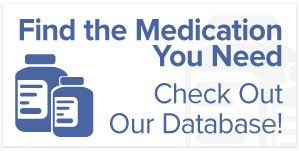Iron deficiency anemia is a common anemia type that is caused by insufficient iron in your body. Iron is an important part of hemoglobin and blood production, and iron deficiency anemia can produce a lack of healthy red blood cells in your system.
Without iron, the body cannot produce enough hemoglobin. Since red blood cells are responsible for carrying oxygen to different body tissues, iron deficiency can cause tiredness and shortness of breath.
What Happens to the Body With Iron-Deficiency Anemia?
Iron deficiency anemia can be mild and asymptomatic in its initial stages. However, as iron deficiency gets worse, the body can experience the following signs and symptoms.
- Extreme weakness
- Chest pain
- Fatigue
- Pale skin
- Fast heartbeat
- Headache
- Shortness of breath
- Brittle nails
- Lightheadedness
- Poor appetite.
Treatment of Iron Deficiency Anemia
Certain groups of people are at risk of iron deficiency anemia. These include women, vegetarians, blood donors, and premature babies. The treatment of iron deficiency anemia includes.
Iron Supplements
Iron supplements, oral iron, or iron pills increase the iron levels in your body. Iron supplements are the most common treatment procedure for iron deficiency anemia. Usually, it takes 3 to 6 months for the iron levels to restore to normal. However, these supplements can produce some side effects, such as diarrhea, metallic taste, vomiting, constipation, and stomach upset.
Medicines
When iron deficiency anemia is mild to severe, doctors prescribe certain medicines to go with iron therapy. These medicines are only used when it is effective to help bone marrow produce more red blood cells. Patients who have iron deficiency anemia with another chronic disease, like kidney disease, are usually prescribed these medicines.
Intravenous Iron
In this procedure, iron levels are increased in the body through the intravenous route. This treatment procedure takes only a few sessions to restore the iron levels to normal. IV iron is mostly recommended for people who have either serious iron deficiency or long-term conditions. However, some side effects are associated with IV iron, which include headaches and vomiting after receiving the treatment.
Blood Transfusion
Anemic patients who have chest pain, weakness, shortness of breath, or are actively bleeding, are given red blood cell transfusions. This procedure can replace iron-deficient blood quickly but cannot treat the deficiency.
Diet Modifications
Along with the treatment, your doctor might ask you to add iron-rich foods to your diet, such as dried fruits, eggs, beans, lean red meat, iron-fortified bread, salmon, peas, cereal, and dark green leafy vegetables.
Along with these foods, you may be required to take vitamin C-rich foods that will help your body absorb the iron in your diet. Tea, coffee, and wine can reduce iron absorption in your body and reduce the overall iron levels in your blood.
Conclusion

Iron deficiency anemia must not be taken lightly. You cannot self-diagnose or treat this condition. Seek your doctor for a proper diagnosis and treatment plan. Healthcare in the USA can be costly, especially for uninsured or underinsured individuals, so get your medication discounts with The Rx Helper.



